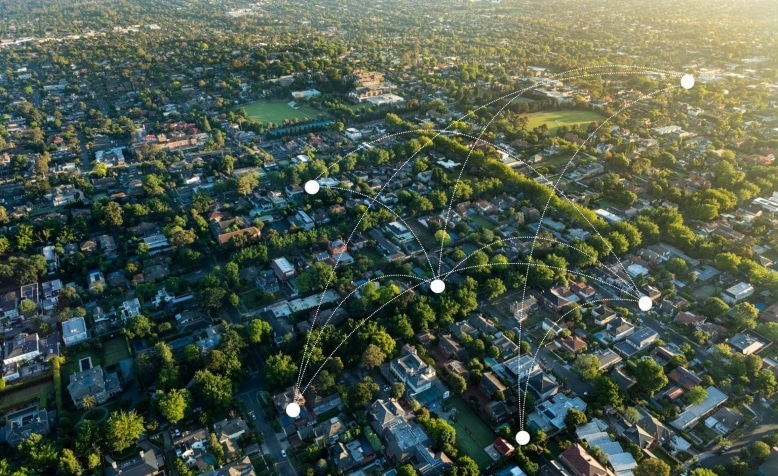Broadband Office Name: Department of Business and Economic Affairs (BEA)
BEAD Award Amount: $196.6 M
New Hampshire Broadband Director: Mathew Conserva
Website: https://www.nheconomy.com/office-of-broadband-initiatives
New Hampshire BEAD Program Tracker
| State | IP Vol 1 Approval | IP Vol 2 Approval | Challenge Process Submission Started | Challenge Process Final Determination Phase Completed | 1-Year Subgrantee Selection Process |
|---|---|---|---|---|---|
| New Hampshire | Yes | Yes | Yes | No | Yes |
New Hampshire BEAD Program Information

Key Updates
New Hampshire has its Initial Proposal Volume 2 approved by the NTIA and is currently in the BEAD Challenge Process Phase. Here is New Hampshire’s Challenge Process Timeline:
- Challenge Phase – July 15, 2024 – August 14, 2024
- Adjudication – August 15, 2024 – August 29, 2024
- Rebuttal Phase – August 30, 2024 – September 29, 2024
- Final Determinations – September 30, 2024 – October 30, 2024
New Hampshire BEAD Program Plans & Maps
New Hampshire BEAD Program Initial Proposal Volume 2: Overview
All information is sourced from New Hampshire’s Initial Proposal Volume 2.
BEAD Long-Term Objectives
Below are the goals for the New Hampshire Department of Business and Economic Affairs (BEA):
Broadband Access
- out broadband infrastructure to 100% of the state’s broadband serviceable locations by 2029, ensuring all residents have access to broadband speeds greater than 100/20 Mbps, with a stretch goal of all residents having service of at least 100/100 Mbps.
- Eliminate unserved locations.
- Eliminate underserved locations.
- Ensure Community Anchor Institutions (CAIs) have access to 1 Gbps symmetrical speeds, depending on available funding.
Broadband Adoption
- Increase household adoption (broadband subscription) rates (to 91.3%)
Broadband Affordability
- Increase the percentage of eligible households enrolled in the Affordable Connectivity Program (ACP) and work with subgrantees to develop and offer a Low-Priced Option for ACP-qualified and enrolled Granite Staters. Expand ACP enrollment by 25% by 2030.
New Hampshire BEAD Program Project Area Design
From the results of the Challenge Process, BEA will establish the BSLs that may be funded by the BEAD program and will include further deduplication of BSL lists as of the date of the challenge process. BEA shall then publish the BSL lists. Potential providers shall base their applications upon these lists of unserved and underserved BSLs.
Project area boundaries may be cities, towns, or contiguous groups thereof. Prospective subgrantees will need to submit an application providing service to all unserved and underserved locations within the project area boundary.
New Hampshire BEAD Program Extremely High Cost Threshold
The State’s use of BEAD funding will be directed by fair market value based on technology
options to solve for the occurrence of an Extremely High Cost BSL in our state. Once this analysis
is complete, an EHCPL will be determined. The State will submit an EHCPL as part of their Final
Proposal.
New Hampshire estimates today that allocated BEAD funding coupled with at least a minimum
match from eligible subgrantees will be sufficient to reach all unserved and underserved locations.
This expectation is based upon current FCC mapping data and detailed estimates of the costs of
ongoing and future deployment identified, as well as projected per-BSL costs to deploy in New
Hampshire. The state has a precise count of unserved and underserved locations to be served.
Subgrantee responses will be analyzed and compared with nationally available data including the
Extremely High-Cost Threshold tool, recently completed deployment costs in New Hampshire,
especially the data gathered in the ongoing Broadband Matching Grant Initiative (BMGI) costs.
New Hampshire recognizes that while the data sources will provide guidance, the locations
identified for a BEAD-funded solution will be the most difficult and therefore the costliest to serve.
New Hampshire also recognizes that the expected subgrantee responses will rely on extending
existing networks rather than creating entirely new networks, an additional important data point
that will be used in the analysis.
BEAD Deployment Subgrantee Selection
BEA is asking for the following preregistration information from subgrantees and compliance with financial capability, managerial capability, operational capability, technical capability, ownership information, project area definition, public funding information, compliance with laws, cybersecurity/supply chain compliance, EHCT process, tribal consent, and BABA/EHP compliance.
For Priority Broadband Projects:
Primary Criteria
- Minimal BEAD Outlay – 45 pts
- Affordability – 20 pts
- Fair Labor Practices – 10 pts
Secondary Criteria
- Speed to Deployment – 5 pts
- Local Coordination – 7 pts
- Workforce Development – 5 pts
- Cost Per Passing – 8 pts
Other Last-Mile projects:
Primary Criteria
- Minimal BEAD Outlay – 45 pts
- Affordability – 20 pts
- Fair Labor Practices – 10 pts
Secondary Criteria
- Speed to Deployment – 5 pts
- Local Coordination – 5 pts
- Speed of Network and other Technical Capabilities – 5 pts
- Workforce Development – 5 pts
- Cost Per Passing – 8 pts
BEAD Non-Deployment Subgrantee Selection
The State of New Hampshire does not anticipate having any available BEAD funding for non-deployment activities.
BEAD Eligible Entity Implementation Activities
The state of New Hampshire does not anticipate implementing any initiatives without making a subgrant.
BEAD Local, Tribe, and Regional Broadband Planning Process
Current Funding Efforts in New Hampshire:
Funding Sources: Capital Projects Fund – ARPA, CARES Act, BEAD Planning Grant, Digital Equity Planning Grant, Digital Equity Capacity Grant, BEAD Grant, ACP, Schools and Libraries fund, Emergency Broadband Benefit Program, NTIA Middle Mile Grant, State and Local Fiscal Recovery Funds, A-CAM, ACP Outreach Grant, A-CAM 2, Connect America Fund, Rural Digital Opportunity Fund, and the NBRC State Economic & Infrastructure Development Investment Program.
Support and Collaboration: Technical, funding, broadband planning, and policy assistance with nonprofit/advocacy groups, universities, local and regional organizations.
Promotion Efforts:
- 222 Public Libraries
- Dovernet Public Wireless (Community WiFi)
- Network New Hampshire Now (NNHN)
- New Hampshire Electric Cooperative (NHEC)
- University System of New Hampshire (USNH) (iBeamNH)
- Broadband Center of Excellence
- Tech Goes Home (community skills initiative)
- Connecting NH
Digital Equity Initiatives:
- NH Public Library Partners
- Community College System of NH
- NH Technology Apprenticeship Programs
- Girl Scouts (STEM Badge Blast)
- NH Electric Cooperative (NHEC)
- HUD ConnectHome USA
- Lifeline Program
- Disability Rights NH
- ICanConnect
- University of NH
- For Inspiration and Recognition of Science and Technology (FIRST)
- NH Career Academy
- NH Department of Education (K-12 digital literacy and computer science guidelines)
BEAD Labor Standards & Protection
BEA requires all subgrantees to submit the following information:
A record of past compliance with federal/employment laws:
- Must address info on deployment projects within the last 3 years.
- Certification form from an Officer/Director level employee of past compliance.
- Written confirmation that the subgrantee has disclosed any violations from contractors within the last 3 years.
Plans for ensuring compliance with federal/employment laws:
- Wages/benefits by worker classification.
- Wages/benefit information.
- Supply of skilled workers.
- How labor disputes are minimized.
- Steps for safety/healthy workplace.
Other requirements:
- Use of a directly employed workforce.
- Paying prevailing wages and benefits.
- Project labor agreements.
- Local hire provisions.
- Union neutrality.
- Labor peace agreements.
- Appropriately skilled/credentialed workforce.
- Prevent misclassification of workers.
Other information on the subgrantee’s workforce plan as outlined in the BEAD NOFO.
BEAD Minority Business Enterprises / Women’s Business Enterprises / Labor Surplus Area Firms Inclusion
New Hampshire does not have any labor supply area firms but will support small and disadvantaged businesses throughout the entire BEAD grant-funded process.
BEAD Cost & Barrier Reduction
- Promoting the use of existing infrastructure.
- Coordinating with the NH Public Utilities Commission, NH Department of Transportation, and other state/local governments, ISPs, and utilities.
- Promoting and adapting dig-once policies.
- Coordinating with the NH Department of Transportation and others to align with the goals of the MOBILE NOW Act.
- Currently, no formal dig-once policy exists.
- Dig Safe System Inc. serves as a clearinghouse for excavation information.
- Streamlining permitting processes.
- Coordinating with the NH Department of Energy, NH Department of Transportation, and localities to address and overcome any permitting issues.
- Streamlining cost-effective access to poles, conduits, and easements.
- The NH Department of Energy oversees pole attachment rules, including those that implement the FCC’s One Touch Make Ready provisions.
- No barriers exist for parties entering pole attachment agreements voluntarily.
- Streamlining rights of way, including the imposition of reasonable access requirements.
- The NH Department of Transportation has launched a Broadband Infrastructure Right of Way effort and created a web form for stakeholders.
BEAD Low-Cost Broadband Service Option
The New Hampshire Department of Business and Economic Affairs (BEA) will require all subgrantees to offer a low-cost broadband service option to households at Broadband Service Locations (BSLs) included in a subgrant project area that are eligible for or enrolled in the Affordable Connectivity Program (ACP) or any successor or equivalent program as follows:
- Affordable Rate: An end-user effective rate of $30 per month, up to $50 per month where justified, for a service offering 100 Mbps downstream, 20 Mbps upstream, and a minimum latency of 100 milliseconds.
- Rate Modifications: Applicants and subgrantees may request modifications to this rate based on evidence of financial non-viability, but the rate must always be at or below the initial $50 Not to Exceed level.
- Eligibility: Available to all BEAD-funded households eligible for and enrolled in the ACP or a successor program as modified by Congress.
- Contractual Requirement: The specified or subsequently modified rate, as well as the other provisions identified in this section, will be a contractual requirement of awardees for the duration of the federal interest, as specified by NTIA.
- Performance Standards: If the FCC revises the federal definition of broadband to a performance level higher than the 100/20 standard currently required for BEAD, that new federal definition shall become the required performance standard.
- ACP Benefit: Allows the end-user to apply the ACP or successor program(s) benefit to the service price and encourages customers to participate in the ACP or successor program(s).
- No Additional Charges: Not subject to data caps, installation or other non-recurring charges, surcharges, or usage-based performance reductions, and only subject to the same acceptable use policies as other home broadband plans offered by the subgrantee.
- Free Upgrades: If the provider later offers a low-cost plan with higher speeds downstream and/or upstream, permits eligible subscribers to upgrade to the new low-cost offering at no cost.
- Public Awareness: Subgrantees must make households within subgrant service areas aware of the availability of the low-cost plan via public awareness campaign activities, as mandated by NOFO.
BEAD Middle-Class Affordability Plans
Based on Pew analysis and FCC benchmark data, it appears that most available pricing in New Hampshire may currently be considered “affordable” for middle-class households. Providers routinely offer multiple tiers of service at various pricing levels to meet households’ different budgetary needs.
Accordingly, rather than set a dollar figure target at this stage regarding Middle Class
Affordability, New Hampshire intends to require any sub-recipient of BEAD funding to offer (at
least throughout the life of the program) the same level of services, at rates, terms, and conditions
to BSLs covered by BEAD funding that match those offered to non-BEAD BSLs in the same
118 market.
As part of the sub-recipient scoring process, New Hampshire will encourage providers to offer multiple plans, including more affordable options, to households covered by BEAD.
Subrecipients will be required to outline these plans as part of the BEAD scoring rubric to
demonstrate affordability for middle-class households. Lower-cost plans will accordingly be
weighted favorably as part of the scoring process.

